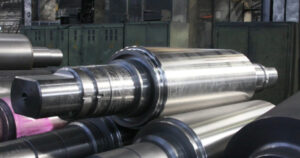
Dnipropetrovs’k Rolling Mill JSC (DZPV) ended 2024 with a loss of UAH 58.32 million, which is 2.5 times higher than in 2023, according to the information on the agenda of the company’s general meeting of shareholders scheduled for April 29.
According to the draft decision of the meeting, the loss is planned to be covered by profits of future periods.
“Dividends based on the results of the financial and economic activities of JSC “RPE” for 2024 shall not be accrued and paid due to the lack of net profit,” the draft decision says.
The owners of equal stakes in DZPV JSC (49.669% each) are a large manufacturer of iron castings, Ferrum-Steel LLC (Novomoskovsk, Dnipro region), and a distributor of spare parts for agricultural machinery, Kewpart LLC (Dnipro).
As reported, Kewpart and Ferrum-Style recently announced their intention to compulsorily buy out minority shares through a squeeze-out procedure at a price of UAH 18.21 per share with a par value of UAH 1.05.
The relevant public irrevocable request to buy back shares from minority shareholders was sent to the company on March 17.
Founded in the late 19th century, DZPV produces cast iron rolls for hot rolling mills, non-metallurgical rolls, and cast iron grinding balls.
The plant’s net income, according to the Clarity-project, decreased by 48.6% in 2024 compared to 2023, to UAH 58.45 million (in pre-war 2021, this figure was UAH 288 million).
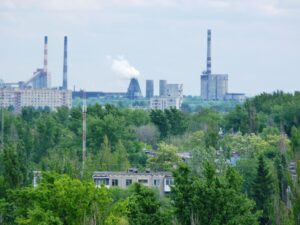
According to the results of 2024, PJSC YUZHKOKS (Kamianske, Dnipro region) increased its net loss by 4.7 times compared to the previous year – up to UAH 272.924 million from UAH 58 million 25.2 thousand.
According to the agenda of the general meeting of shareholders of the company scheduled for April 18, which will be held remotely, it is planned to consider the report of the Board of Directors for 2024 and to adopt a decision based on the results of consideration of the report of the Board of Directors for 2024.
The agenda also includes adopting a decision based on the results of the review of the report of the company’s interim CEO for 2024, reviewing the auditor’s findings, approving the results of financial and economic activities for 2024, and determining the procedure for covering losses.
In addition, the meeting will give preliminary consent to enter into significant transactions.
The draft resolutions, a copy of which is available toInterfax-Ukraine, propose to cover the losses incurred by the company based on the results of its operations in 2024 in the amount of UAH 272 million 924.570 thousand at the expense of the company’s profit for future periods.
As reported, YUZHKOKS ended 2022 with a net loss of UAH 1 billion 206.942 million, while in 2021 it made a net profit of UAH 1 billion 292.672 million.
According to the third quarter of 2024, Dashuria Ltd. (Cyprus) owns 94.9565% of the company’s shares.
The authorized capital of YUZHKOKS PrJSC is UAH 171.918 million, with a share par value of UAH 0.25.
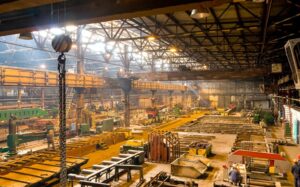
PJSC “Ukrstal Zaporizhzhia Steel Structures Plant” ended 2024 with a net loss of UAH 15.803 million, while in 2023 it was UAH 13.955 million.
According to the company’s announcement in the information disclosure system of the National Securities and Stock Market Commission (NSSMC), the company’s shareholders’ meeting scheduled for April 20, 2025, proposes to leave the net loss for 2024 uncovered.
According to the agenda, the shareholders will review the reports of the Supervisory Board and the auditor for the past year and approve the results of financial and economic activities.
PrJSC “Ukrstal Zaporizhzhia Steel Structures Plant” is the legal successor of PJSC “Zaporizhzhia Steel Structures Plant” (the name was changed in April 2017). Its principal activity is the production of building metal structures.
According to the third quarter of 2024, Closed Non-Diversified Venture Corporate Investment Fund Rift JSC owns 56.303% of the shares of PJSC “Ukrstal Zaporizhzhia Metal Structures Plant”, Technological Renaissance LLC owns 42.8637%.
The authorized capital of the PrJSC is UAH 137.424 million, the par value of 1 share is UAH 0.01.

AB InBev Efes Ukraine (Kyiv) reduced its net loss by 26.1% to UAH 600.335 million in 2024, according to the agenda of the general meeting to be held remotely on April 11.
According to the published information, the shareholders plan to cover the losses at the expense of the company’s additional capital.
The shareholders are also proposed to approve the report of the company’s board of directors for 2024 and take into account the conclusions of the audit report for 2024.
According to the Opendatabot service, the company increased its revenue by 16.9% to UAH 5.451 billion in 2024, and its liabilities by 1.7 times to UAH 3.424 billion. At the same time, the company’s assets decreased by 2.4% to UAH 5.185 billion, and the number of employees decreased by 128 people to 1,088.
As reported, the shareholder structure of Abinbev Efes Ukraine was to change as part of the restructuring of the joint business of AB InBev and Anadolu Efes, which was explained by the Belgian company’s desire to leave the Russian market. Initially, it was planned that Anadolu Efes would buy out ABI’s entire stake in their joint venture AB InBev Efes B.V., which includes breweries in Ukraine and Russia, as announced in December 2023. However, Russia blocked the deal. As a result, the companies agreed on a different scenario in October 2024: Anadolu Efes will acquire AB InBev’s stake in the Russian business, and AB InBev will acquire Anadolu Efes’ stake in the Ukrainian business.
In December 2024, the Antimonopoly Committee of Ukraine granted a permit to AB InBev Western European Holding B. V. (Breda, the Netherlands) to acquire Abinbev Efes Ukraine PrJSC. The AMCU also allowed Efes Breweries International B.V., a member of the international Anadolu Efes group, to obtain sole control over AB InBev Efes B.V.
AB InBev Efes is one of the leaders in the Ukrainian brewing market, a joint venture of the world’s largest brewer Anheuser-Busch InBev and Turkey’s largest brewer Anadolu Efes.
The portfolio of beer brands consists of global (Bud, Corona Extra, Stella Artoi), international (Hoegaarden, Leffe, Beck’s, Lowenbrau, Franziskaner, Spaten, Velkopopovickiy Kozel) and local (Chernihivske, Rohan, Yantar) brands.
In 2023, Abinbev Ephesus Ukraine suffered serious losses of UAH 811 million with a turnover of UAH 4.6 billion. In the first year of the full-scale invasion, the company’s performance dropped from UAH 2.2 billion in revenue to UAH 2.1 billion in losses. The reason for this was damage to the company’s plants in Chernihiv, Mykolaiv and Kharkiv as a result of the hostilities.
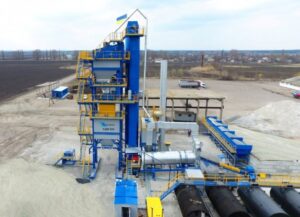
Kremenchuk Plant of Road Machines (Kredmash JSC, Poltava region) ended 2024 with a loss of UAH 13.08 million, down 23% from the same period in 2023.
According to the information on the agenda of the general annual meeting of shareholders of the company on April 18, the shareholders intend to approve the sources of loss coverage, in particular, at the expense of retained earnings of previous years, reserve capital and additional capital (funds for production development).
According to the company, in 2024, the uncovered loss also amounted to UAH 13.08 million, compared to UAH 16.95 million a year earlier.
The company’s current liabilities increased by 36.8% to almost UAH 54 million over the year, while long-term liabilities decreased by 2.2 times to UAH 4.5 million.
JSC “Kredmash” managed to reduce total accounts receivable by 46% to UAH 18.51 million, and assets increased slightly to UAH 515.54 million.
The net loss per ordinary share amounted to UAH 38.27 (UAH 49.6 a year earlier).
“Kredmash specializes in the development and manufacture of asphalt and soil mixing plants, spare parts for construction and road equipment, tank trucks, bitumen trucks, cast iron and steel castings.
According to the NSSMC as of the third quarter of 2024, the major shareholders of the JSC are the Chairman of the Supervisory Board and President Mykola Danyleiko (15.97% of shares), Chairman of the Board Oleksandr Tverezny (over 10.2%), as well as Euroautomation LLC (over 9.6%) and KDM Invest (9.8%).
Another 5% of the shares belonged to the former longtime director of the plant (until the early 2000s), Borys Muntyan, who, according to local press reports, died in November 2024.
According to the company’s financial report, in 2023, it reduced its net income by 36% year-on-year to UAH 186.4 million, while reducing its loss by 44% to almost UAH 17 million.
The company sold only three asphalt and soil mixing plants (average selling price of UAH 21.5 million), as well as consumer goods worth UAH 69.95 million.
In January-September 2024, according to Clarity-project, the company’s net income decreased by 35% compared to the same period in 2023, to UAH 108.2 million.
As reported, in pre-war 2021, the plant sold products worth UAH 1.2 billion. In June 2022, the plant’s industrial facilities were partially destroyed as a result of an enemy rocket attack on Kremenchuk.
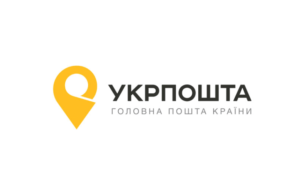
JSC “Ukrposhta” in January-March 2024 increased income by 10.1% year-on-year to UAH 3.05 billion, reducing net loss 2.1 times to UAH 190.3 million.
“Net income from the sale of products (goods, works, services) For the first quarter of 2024 is UAH 3.05 billion, which is UAH 340.2 million or 10.0% less against the plan and UAH 280.4 million or 10.1% more against actual data for the first quarter of 2023,” the company said on its website on Wednesday.
Non-fulfillment of the income plan is due to the fact that the company was not able to provide services in full on the territories where hostilities are conducted and on temporarily occupied territories. At the same time, for a number of basic services there is an increase in sales volumes, which allowed to ensure the growth of income compared to the same period last year, indicated in JSC “Ukrposhta”.
EBITDA of the company in the I quarter of 2024 amounted to 83.7 million UAH.
“Ukrposhta” in the first quarter of 2024 received domestic and international shipments in the amount of 24.1 million units of written correspondence, 12.4 million parcels. Also, paid 3.5 million transfers and 9.5 million pensions and cash benefits;
1.2 thousand titles of periodicals of Ukraine were distributed by subscription and retail, which amounts to 16.7 million units, including 14.3 million units by subscription and 2.4 million units by retail.
Ukrposhta JSC had 5.57 thousand stationary outlets and 1.86 thousand mobile outlets. The average number of full-time employees as of the first quarter of 2024 is 34.258 thousand people, including postal operators – 7.053 thousand, postmen – 7.974 people.
The average salary of a full-time employee of Ukrposhta in the I quarter of 2024 13.799 thousand UAH.